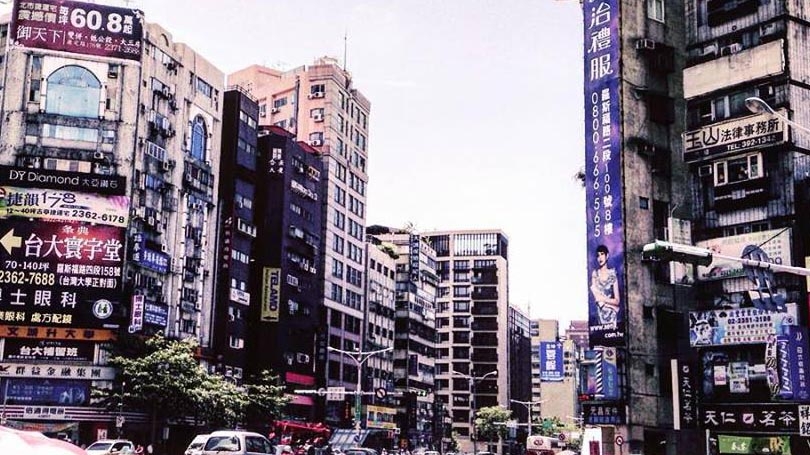
Kyle Kaplan completed his research in Taiwan as part of his work in the Digital Musics program
Taiwan, a nation built from the rogue remnants of China’s overthrown Nationalist party, defines its culture from numerous, often contradictory, sources: a continuation of China’s 5000 year old historical narrative, a post-Japanese colony, a crucible of aboriginal traditions, a capitalist miracle, a trough of modern consumerism. It was here that I lived for three years before attending Dartmouth to study Digital Musics, and it was here that I returned last summer, with the assistance of the Alumni Research Award, to document Taiwan’s dynamic array of alternative noise and performance artists.
I had long discussions with over a dozen creatives and event producers, teasing apart their diverse set of influences and filming their studios and performances. Last term, with the guidance of Professor Jodie Mack, I focused on editing the footage I acquired on Dino (廖銘和), an artist who embodies many of Taiwan’s diverse cultural influences and political narratives.
Dino began making noise music in the mid-1990’s, in the wake of the island’s peaceful democratization in the late 80’s, when a newfound social liberalism was coursing through the country. Noise music was just beginning to take root. Wang Fujui, arguably the country’s most prominent contemporary experimental electronic musician, had began releasing harsh cassette tapes through his independent label Noise. Around the same time, Lin Qiwei organized the Post-Industrial Arts Festival, a massive noise festival held in Banqiao’s abandoned factories on the outskirts of Taipei. Dino was among the youth who attended this event, exposing him to the vast potential and affective power of noise music. Seeing the amount of freedom possible in a solo project involving minimal equipment, Dino abandoned his punk bands and began exploring the chaos of feedback in a simple setup consisting of a no-input mixer and a few guitar pedals. Nearly two decades later, it’s the same system he uses today.
Dino’s engagement with feedback would become his area of expertise, and the language he uses to describe this engagement echoes the violent political heritage of his country. As he describes his performance:
“What I am aiming to do with my practice is the skill of suppressing feedback. I have mastered suppression . The instrument I use, it’s like if I don’t use violence to suppress it, it’s going to suppress me. It’s quite simple;, no one would let me play if that was the case because I’d break their speakers. So, I’ve always thought, during performance, violence is necessary.”
Particularly striking about speaking with Dino was the manner with which he lived his life. He lives at the edge of the jungle in Taipei’s quiet Southeast Nangang district in a small, crumbling stone building, a relic from when the Japanese colonized Taiwan in the beginning of the 20th century. Next to miscellaneous wires and cables, three guqins (traditional 7-stringed Chinese instrument) and mystical calligraphy scrolls hangs from on his walls. One text reads “Forget oneself to enter the mystery (忘我通玄妙)”. His whole demeanor effuses humility, joy, and equanimity. For Dino, there exists no boundary between art and life. He lives a life of self-described virtue, following Confucius principles “to live with unquestionable morality, for one’s neighbors, resting in perfect goodness (大學之道、在明明德、在親民、在止於至善).” He doesn’t practice for his performances; for Dino, embodying ease and kindness in all moments is his practice.
The short documentary I made was recently accepted to the Currents New Media Festival in New Mexico for screening in June 2016, and will also be shown at the White River Independent Film Festival in (May 13th-16th, 2016). In the coming year, I intend to edit more of the interviews of the many artists I was honored to speak with, creating a rich collection of portraits of Taiwan’s contemporary noise scene.